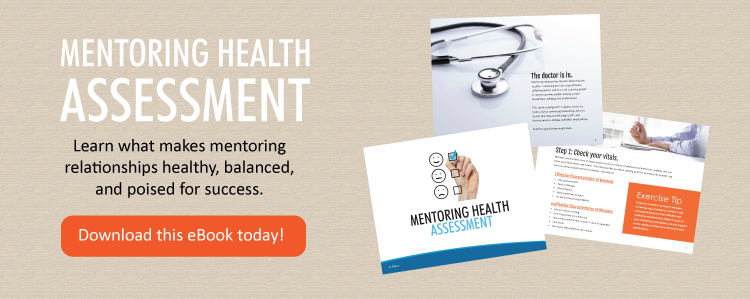Mentee and Mentor Training Resources
 I often write about modern mentoring and how to engage with groups of people for collaborative and generative learning. But this time around, I want to focus on a more traditional mentoring schema—a mentoring pair.
I often write about modern mentoring and how to engage with groups of people for collaborative and generative learning. But this time around, I want to focus on a more traditional mentoring schema—a mentoring pair.
Mentoring is meant to be a learning relationship where both parties benefit from spirited sharing. To get the most from your mentoring experience, you must fully engage your mentoring partner, but it can take time and focused effort to create a learning partnership that has the attributes necessary to be truly transformative.
 People can lose their focus over time and become disengaged in the mentoring relationship. It does not necessarily mean they have lost interest in their relationship, but is likely more a factor of competing priorities and a finite amount of time. A disengaged mentee or mentor may go radio silent and leave their partner wondering what happened. A person can also be semi-engaged in a mentoring relationship, where their interactions are guarded, reserved, and focused mainly on immediate results.
People can lose their focus over time and become disengaged in the mentoring relationship. It does not necessarily mean they have lost interest in their relationship, but is likely more a factor of competing priorities and a finite amount of time. A disengaged mentee or mentor may go radio silent and leave their partner wondering what happened. A person can also be semi-engaged in a mentoring relationship, where their interactions are guarded, reserved, and focused mainly on immediate results.
Think you could be in a semi-engaged mentoring relationship? Here are some clues to help you figure out if you are or not.
- You (or your mentoring partner) withhold thoughts, ideas, opinions, or facts.
- You view your relationship solely from your point of view as the mentee or mentor (i.e., mentees take knowledge and mentors give knowledge).
- You only value the relationship based on what’s in it for you.
In general, there is not enough trust to allow open and free exchanges between you and your mentoring partner. Your self-interest drives your motivation and relational behavior when interacting with your mentee or mentor.
Finding Just the Right Fit
 Even if you find that you are only semi-engaged with or completely disengaged from your mentoring partner, don’t lose hope! You can get things back on track and move your mentoring relationship to a more ideal territory where both of you are fully engaged. Focus on making your communications and interactions with one another participative, centered on honest sharing, collaborative, authentic, open, and focused mainly on mutual benefits.
Even if you find that you are only semi-engaged with or completely disengaged from your mentoring partner, don’t lose hope! You can get things back on track and move your mentoring relationship to a more ideal territory where both of you are fully engaged. Focus on making your communications and interactions with one another participative, centered on honest sharing, collaborative, authentic, open, and focused mainly on mutual benefits.
Here are some tips to help get you to a fully engaged relationship:
- Freely exchange thoughts, ideas, opinions, or facts.
- Create a trusting relationship that enables honest and open discussion of issues that are private and intimate.
- Respect one another.
- Be authentic.
- Learn from one another; it’s not just mentees who can learn in a mentoring relationship.
- Seek to create new understanding together as your relationship evolves.
Don’t think that because your initial conversation with your mentoring partner went well that you are fully engaged. Respect and trust take time to develop. Both of you will have to share truths about how you think, act, and emote before true depth of relationship can be formed.
As the saying goes, people don’t care how much you know, until they know how much you care. Show your partner you care by being fully engaged to them and to the relationship.
Get more ideas on how to engage your mentoring partner and check on the health of your mentoring relationship in River’s free Mentoring Health Assessment eBook!









